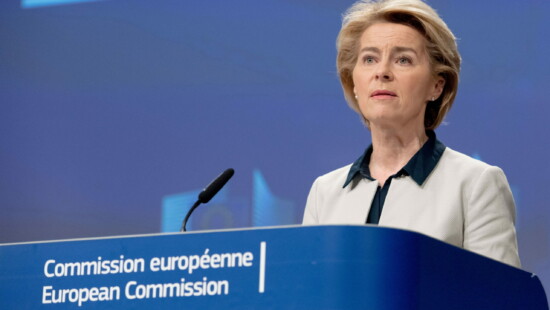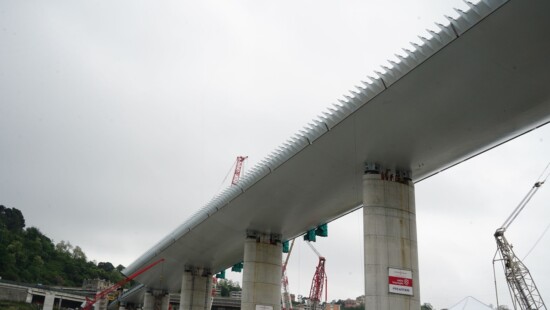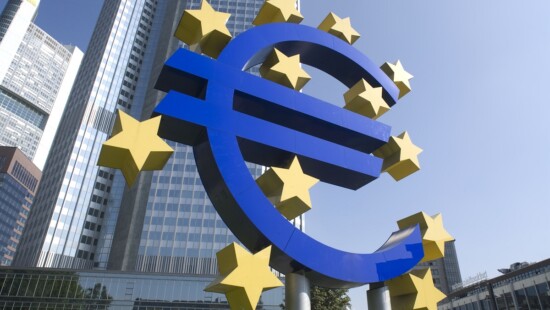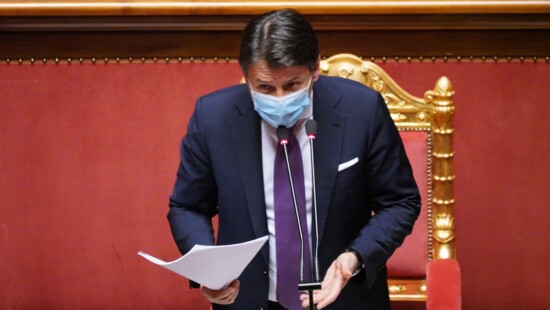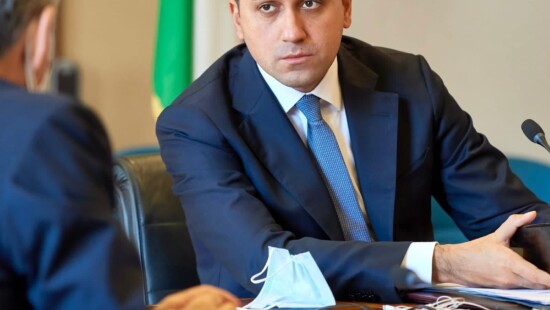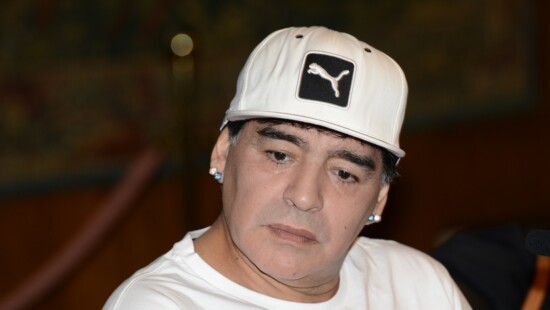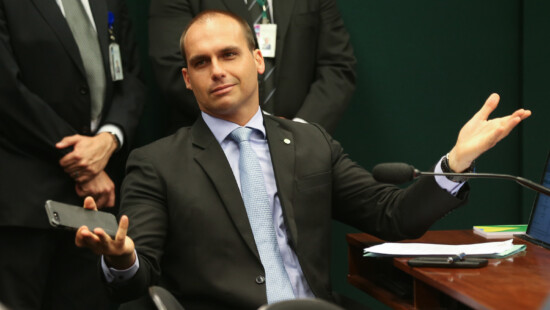L’attenzione dei media attualmente è attirata dal fatto che tre Paesi del cosiddetto gruppo di Visegard (Polonia, Ungheria e Slovenia) si contrappongono al Next Generation Eu perché presenta una pesante condizionalità: il rispetto dei principi dello Stato di Diritto. La vicenda di questi giorni ci sollecita una visione prospettica che tenti di andare al di là del contingente.
Vogliamo qui richiamare l’attenzione su due punti: (i) la progressiva importanza che il rispetto dei diritti fondamentali sta acquisendo nel processo di progressiva costruzione della Ue con il ruolo della “carta europea dei diritti fondamentali” e (ii) il rapporto sul rispetto dei principi dello Stato di Diritto redatto dalla Commissione UE e recentemente pubblicato. Vediamo brevemente i due punti separatamente.
La costruzione della Comunità europea prima e successivamente al trattato di Maastricht è stata una costruzione pressoché esclusivamente economica. Nel secondo dopoguerra, mentre alla Comunità Europea veniva assegnata la funzione di integrazione economica, la difesa e la promozione dei diritti dell’uomo e dei principi dello Stato di Diritto veniva assegnata al Consiglio d’Europa. Del Consiglio d’Europa (istituito nel 1949) ha fatto parte sin dall’inizio, e continua a farne parte, il Regno Unito. Al Consiglio d’Europa esiste una sorta di diarchia morale che assegna alla Francia e allo Uk la guida morale dell’Istituzione. Ruolo fondamentale in questa funzione è svolta dalla Carta Europea dei Diritti dell’Uomo e dalla Corte Europea dei Diritti dell’Uomo. Il 18 Dicembre 2000 il Parlamento Europeo (organo questo dell’Unione Europea) approva la Carta Europea dei Diritti Fondamentali. Tale Carta viene recepita dal trattato di Lisbona e diventa, quindi, vincolante per gli Stati Membri della UE per quanto riguarda le materie di competenza della Ue. Il comma 2 dell’art. 6 del Trattato di Lisbona prevede che la UE aderisca alla Carta Europea dei Diritti dell’Uomo del Consiglio d’Europa. Il processo è in corso anche se pare che ci sia un ostacolo non da sottovalutare: i principi garantiti dal Trattato di Lisbona sembrerebbero, per certi aspetti, più avanzati rispetto ai diritti protetti dal Consiglio d’Europa e dalla sua Carta Europea dei Diritti dell’Uomo. Tutto sta ad indicare che uno passaggio fondamentale da Maastricht a Lisbona consista proprio nel fatto che la Ue non è solo una costruzione economica ma è anche, e sempre di più, una costruzione basata sul rispetto di diritti fondamentali.
A settembre 2020 la Commissione Ue rende pubblico uno studio che ha condotto per fare una fotografia della compliance dei 27 Stati Membri con i principi dello Stato di Diritto. Il rapporto ci sembra molto debole. Si concentra fondamentalmente su di una analisi di tipo formale limitata ai testi delle Carte Costituzionali e delle Leggi. Tale indagine è arricchita di opinion polls e di pareri di vari osservatori. Ma non va molto a fondo. Nel caso del rapporto sull’Italia, ad esempio, si afferma che l’indipendenza della Magistratura dalla politica sarebbe garantita dal quadro normativo. Si evidenzia anche, comunque, che secondo gli opnion polls i cittadini italiani non credono all’autonomia della magistratura dalla politica. L’analisi della Commissione è carente dal punto di vista dell’analisi funzionale e manca di mettere in evidenza il fatto che il nostro Consiglio Superiore della Magistratura (composto di membri togati e di membri di nomina politica) ha, di fatto, il potere di influire sulla giurisprudenza dei singoli magistrati, limitandone, politicamente, in maniera pesante la propria autonomia.
Sempre nel caso del rapporto dedicato all’Italia notevole spazio è dedicato all’attività anticorruzione e al ruolo dell’Anac. Non si mette in evidenza che le linee guida emanate dall’Anac hanno uno status giuridico ambiguo che spesso si sovrappone con le norme di legge né si mette in evidenza che il meccanismo messo in opera dall’Anac contrasta con i principi della norma anticorruzione Iso 37001. Mentre la Iso 37001 prevede processi codificati e la firma dei vari funzionari che eseguono le varie operazioni (firme che indicano una assunzione di responsabilità), le linee guida Anac prevedono tutta una serie di firme che corrispondono ad altrettante autorizzazioni, quindi ad altrettanti snodi discrezionali. Al rapporto della Commissione sull’Italia sfugge che l’introduzione di questi snodi di tipo discrezionale hanno una serie di conseguenze disfunzionali: allungamento dei tempi, occasioni di contenzioso davanti alla giustizia amministrativa (che comportano ulteriori allungamenti dei tempi), aumento delle occasioni di decisioni discrezionali (che una sana politica anticorruzione dovrebbe comprimere).
Non solo nel caso dell’Italia ci si sofferma solo alla superficie della norma formale. Il problema riguarda un po’ tutti gli Stati Membri. Nel caso dei Paesi Bassi, ad esempio, non si nota l’ambiguità nell’applicazione dei principi della rule of law nell’ambito della democrazia locale.
Nei Paesi Bassi i sindaci e i presidenti delle province vengono inviati direttamente dal re. I consigli eletti hanno una funzione di controllo, non priva di difficoltà, delle decisioni del Sindaco e del Presidente della Provincia. Il meccanismo concreto si complica per il fatto che la Camera Alta è eletta dai Consigli Comunali e dai Consigli Provinciali. Nella prassi questi Consigli seguono, al momento dell’elezione della Camera Alta, le indicazioni persuasive del funzionario reale che di volta in volta opera vuoi come sindaco, vuoi come presidente di provincia. Il fatto è noto a chi ha (come il sottoscritto) familiarità con i Paesi Bassi, oltre ad essere confermato dalla letteratura specializzata nell’analisi istituzionale (KenGladdish, Governing from the Center: Politics and Policy-Making in the Netherlands.,. Cornell University Press, 1998.)
Per esperienza diretta maturata in un paio di decenni come esperto del Consiglio d’Europa, posso testimoniare che, nel caso dei tre paesi del gruppo di Visegard che stanno facendo melina al Next Generation EU e cioé Polonia, Ungheria e Slovenia il rapporto della Commissione manca di mettere in evidenza che in questi Paesi non è chiara la differenza tra personaggi politici eletti (legittimati democraticamente), da una parte, e funzionari professionali (legittimati professionalmente).
Tutto questo non per affermare un qualunquistico “mal comune mezzo gaudio”. Al contrario crediamo sia necessario un invito all’umiltà da parte di tutti ed un invito a rimboccarsi le maniche. Nessuno può assurgere al ruolo di professore che dà voti agli altri. L’integrazione europea è una cosa che va costruita, passo passo. Tale integrazione è non solo economica ma anche istituzionale. L’integrazione istituzionale si sviluppa su due binari: la collaborazione interamministrativa (su cui si sta lavorando e si stanno avendo i primi risultati) e l’uniformizzazione nel rispetto dei diritti fondamentali e dei principi dello Stato di Diritto. Qui un approccio paritario dovrebbe prevalere sull’approccio oggi prevalente a livello latente, cioè sull’approccio basato sull’ipotesi non dichiarata che qualcuno possa fare il professore anche se non si rende conto della trave che ha nel proprio occhio.




